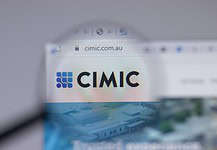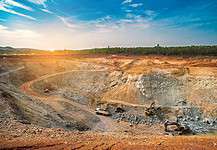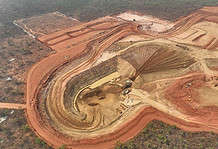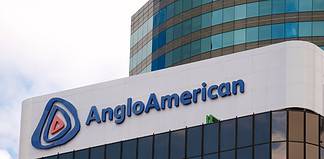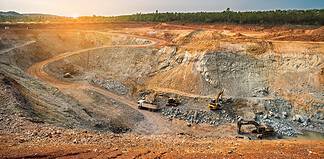MINING and petroleum is the backbone of Papua New guinea’s economy, and Australian-owned or partly owned operations contribute to the development of the nation’s human resource, economy, infrastructure, while improving the livelihoods and living standards of thousands of communities.
At the annual Australia Papua New Guinea Business Forum and Trade Expo in Port Moresby in mid-June,, PNG Chamber of Mines and Petroleum president Garea Aopi said the industry contributes 26pc of PNG’s GDP and 80pc of the nation’s export revenue.
“The sector also provides more than 20,000 jobs to Papua New Guineans, whilst 30,000 more are employed in landowner businesses, and other PNG businesses that support the industry,” Mr Aopi said.
“We also deliver strong and sustainable growth in areas such as infrastructure by building roads and bridges; health facilities and services where we continue to support the provision of much needed medical drugs and supplies for health centers and hospitals, immunisation programs for mothers and children; education and training for thousands of our young Papua New Guineans who have been trained to work in this world-class industry; and business development where we have helped established and grow landowner businesses.”
Mr Aopi said that landowner companies are important because they economically empower communities and provide employment and training to citizens of local communities, and directly benefit families as well, helping to reduce dependency on royalties.
“Resource companies invest heavily in establishing, and providing necessary governance and administrative support to landowner companies which serve to ensure long term sustainability,” he said.
“Landowner and local companies are important to mining and oil and gas companies because they provide a wide range of services including labour hire, janitorial services, catering, security, earth moving, freight and logistics, and transportation.”
Many resources projects have opened up access and opportunities to some of the most isolated rural communities in PNG.
“The resource industry in PNG is a significant economic driver – contributing a sizeable chunk of PNG’s Gross Domestic Product, and providing many other socio-economic benefits,” Mr Aopi said.
In order for the industry – particularly Australia mine owners and investors – to continue supporting and growing the PNG economy, Mr Aopi said there needs to be stable and predictable government policies and a favourable investment climate that underpins PNG’s investment attractiveness.
“We have heard the Government’s desire to amend resource laws, and to ensure PNG benefits more from its resources,” he said.
“We share this desire and will support the development of legislations that encourage investments and provides a better outcome for PNG. We want to work with the Government and all stakeholders to make this happen. We want to see a stronger Papua New Guinea with a stronger economy, and a bright future for our country.”
In early February, the PNG Chamber of Mines and Petroleum raised concerns over delays in the renewal and extension of mining licenses for the country’s biggest mines and the potential detrimental flow on effects for the nation’s economy, following reports that projects such as Porgera, Ok Tedi and Ramu Nickel may not have their leases extended.
“Security of tenure and continuation of mining leases is essential if we want investors to spend billions of Kina in our country,” Mr Aopi said.
“Delays and uncertainty about mining leases could cause major interruptions to some of the big mines, and discourage any new investors.”
Mr Aopi said the Chamber and its members are keen to work with Government to ensure that PNG’s investment climate for resource projects remains attractive as this will underwrite a strong growing economy and increased prosperity for the people.
He also noted that, while global exploration has experienced an upturn in recent years, mineral exploration activity in PNG has fallen (down to $295.9m Kina in 2018 compared to $358m Kina in 2015) which could send the wrong signal to Australian investors.
The delay in mining lease approvals was a surprising turn, considering the World Bank February 2019 edition of the PNG Economic Update which outlined PNG’s economic situation and medium-term development prospects – particularly that the country’s medium-term economic outlook was optimistic if proposed large-scale resource projects are approved.
In addition, real GDP growth was forecast to rebound this year as major mineral and petroleum export projects return to full production following the 2018 earthquake.
PNG Chamber of Mines and Petroleum vice president Richard Kassman said the World Bank Report demonstrates that the mining and petroleum sector remain absolutely critical for PNG jobs, the economy, and all the social benefits that flowed from this.
“Timely approval of the proposed major new projects is essential to getting these projects up and running, and the benefits flowing to the people,” he said.
Projects under consideration by the PNG Government include the world-class Wafi-Golpu project, a 50-50 joint venture project owned by Australian-owned Newcrest Mining, and South African mining giant Harmony Gold, which (if approved) expects a total capital expenditure of $17.4b Kina or US$5.4bn over the estimated 28 year life of the mine, 2500 direct jobs during construction and 850 ongoing operational positions.
“These projects, once approved, are expected to inject significant capital into the PNG economy, create thousands of jobs for our people, and also contribute significantly to improving health, education and infrastructure development,” Mr Kassman said.



